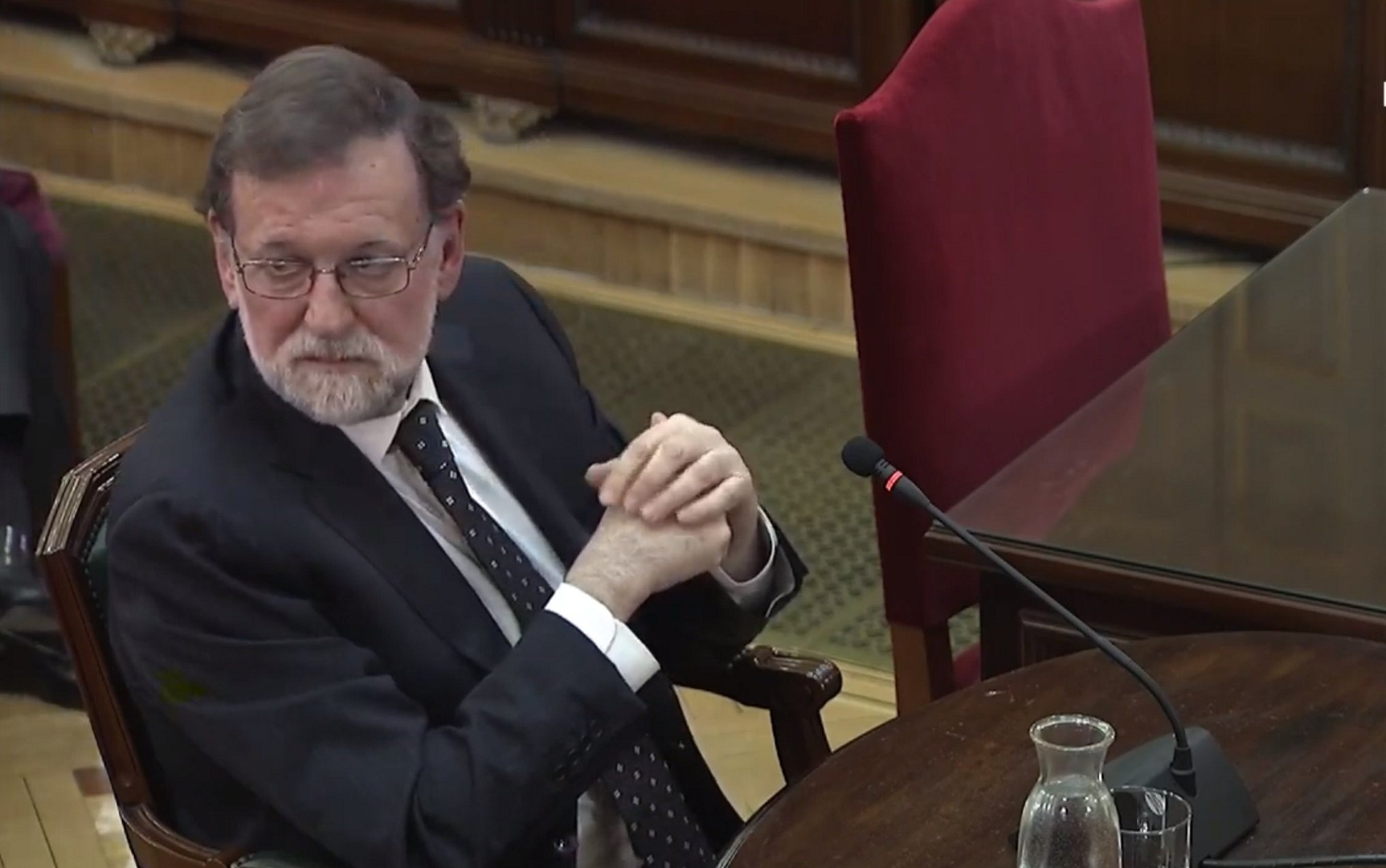As Spanish prime minister at the time of the referendum, Mariano Rajoy was likely the most keenly anticipated witness in the Catalan independence trial. But his testimony this Wednesday risks being invalidated after the former PM put his foot in it by showing he had followed this morning's proceedings, when, among others, his deputy, Soraya Sáenz de Santamaría, testified. Spanish criminal law states that witnesses cannot be aware of other testimony until they themselves appear. There is a chance his statements to the court could be invalidated, although it's unlikely that will end up happening.
In one of his replies, Mariano Rajoy referred to "this morning's testimony" on the differences between the 2017 referendum under consideration and the unofficial 2014 vote. Lawyer Jordi Pina, representing Sànchez, Rull and Turull, asked to clarify the situation which had left him "perplexed". He was asked if he had communicated with any of the witnesses or watched the hearing. "I read the papers," Rajoy responded.
Article 704 of Spain's law of criminal procedure dictates that witnesses cannot communicate with each other or research their fellow witnesses' testimony before their own appearance before a court. Presiding judge Manuel Marchena reminded the prime minister of this requirement, before asking him to clarify the situation. Rajoy responded that he had read "the online papers". The court will consider that response, but it's unlikely they will end up taking any action to invalidate his testimony.
As for his testimony, he stood by his government's actions, even in spite of the violence seen during the referendum. That violence, he said, he learnt about through the media. He also said he didn't know who gave the orders for police to use force during the operation and avoided any suggestion of responsibility as the head of the government at the time.
Asked by Carme Forcadell's lawyer, Olga Arderiu, whether he was aware that the Spanish government has failed to comply with 34 Constitutional Court verdicts over Catalonia, he seemed unsure how to answer. He was also unsure when asked whether he had spoken directly with the lehendakari, the Basque president, Iñigo Urkullu, who had offered to act as a mediator. He said that many people had called him: "you have to understand it's very difficult to remember if I spoke to him personally." Pina replied that it didn't matter, because Urkullu can clarify in his own testimony tomorrow. In any case, Rajoy wanted to make it clear that from his perspective there was nothing to negotiate when it came to a referendum.
Today wasn't the first time he'd appeared as a witness in cour. In 2017, he became the first serving Spanish prime minister to testify in a criminal case, namely the so-called Gürtel corruption investigation into his own party.
The other quotes
"On the referendum, there was nothing to talk about. I made it abundantly clear that in no case would the prime minister of Spain break the Constitution and annihilate national sovereignty".
"I said that the Spanish government would do everything it could for the referendum to not be held".
"Puigdemont sent me a letter in which he urged me to negotiate terms for a referendum. What was organised was not a referendum - there was no referendum".
"If they hadn't called the referendum, we wouldn't have had to see the injuries of some people and police".
"It seemed to us that applying [article] 155 [of the Spanish Constitution to take direct control of Catalonia] was the most just option. The states of emergency and siege were studied, but we didn't dedicate too much time to them".

